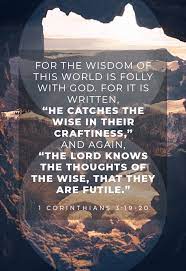
Many of us in this hyper-political world see everything through partisan glasses. Depending on your political philosophy, our society’s greatest faults require either controlling or taxing. Human bureaucracy to the rescue. From that perspective, people of the early Church (after Jesus’ resurrection) might be seen as Communists for their practices.
There was no needy person among them, for those who owned property or houses would sell them, bring the proceeds of the sale, and put them at the feet of the apostles, and they were distributed to each according to need (Acts 4:32-35).
The bureaucracy on the right might recognize this kind of other-worldly faith as foolishness. The left might call it a good but insufficient start.
But those early Christians, suffering from God’s wise foolishness, contracted it not FROM the bureaucracies of this world, but DESPITE them. When things get tough in our 21st century hyper-political reality, we can make our life easier—not via any country’s autocratic hierarchical complex, but by internalizing God’s simple law of love, as Jesus’s beloved disciple reminds us in Sunday’s second reading (1 Jn 5:1-6):
For the love of God is this, that we keep his commandments. And his commandments are not burdensome, for whoever is begotten by God conquers the world. And the victory that conquers the world is our faith.
When the going gets tough, people of faith get going—by detouring around earthbound bureaucracy and traveling together through a spiritual neighborhood called wisdom.
This reroute is not an inconvenience, but an irresistible calling. And that calling is not seen or heard, but sensed through the Holy Spirit we share. Jesus was the physical manifestation of that Spirit, but he called us to join him in a transfiguration beyond our bodily senses. Upon seeing his risen Master with his own eyes, Sunday’s gospel reading shows Doubting Thomas finally stepping outside his shadows of doubt and proclaiming “My Lord and my God!” (Jn 20:19-31).
Jesus diagnosed his vision impairment immediately.
“Have you come to believe because you have seen me? Blessed are those who have not seen and have believed.”
To today’s nearsighted doubting Thomases guided by earthly wisdom, such blind faith is foolishness. But it is a foolishness steeped in divine wisdom. Let’s conclude with Paul’s advice to the Corinthians (1 Corinthians 3:18):
If anyone among you considers himself wise in this age, let him become a fool so as to become wise. For the wisdom of this world is foolishness in the eyes of God.”
–Tom Andel